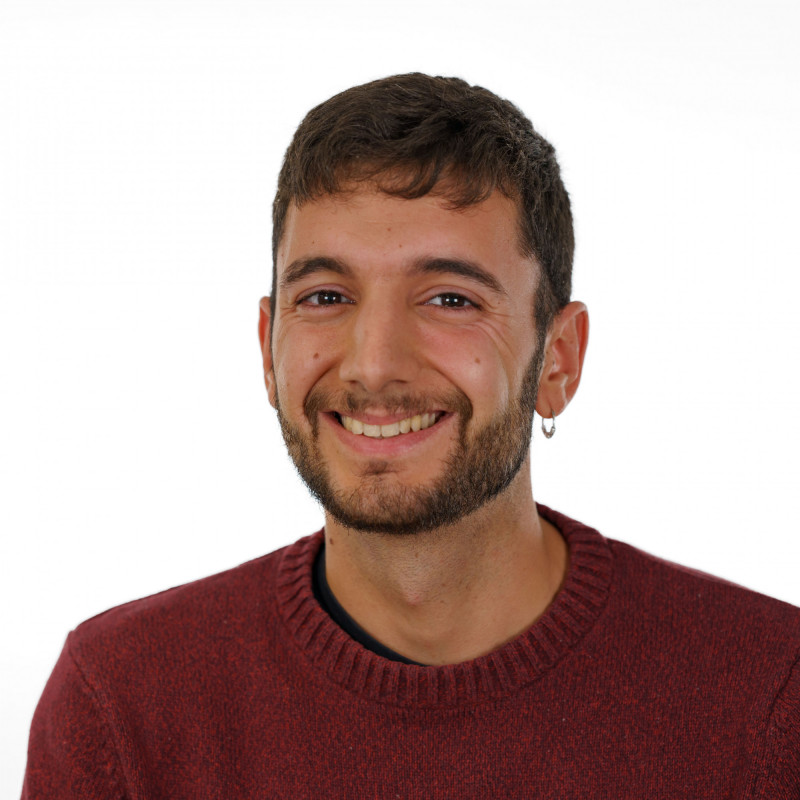Aitor Mairena Diaz
Aitor shares how his MSc in Mathematical Physics helped him turn theory into real-world impact as a Portfolio Quant
 Why did you decide to study at the University of Edinburgh? Where did your interest in science come from?
Why did you decide to study at the University of Edinburgh? Where did your interest in science come from?
I was looking for universities with both a strong reputation and high-quality training, which led me to a few options in the UK. My aim was to eventually do a PhD, so I wanted the best preparation possible in theoretical and mathematical physics. I was fascinated by Scottish culture, lifestyle, and landscapes, and as a musician, I even played drums in a Scottish-style bagpipe band before coming to Scotland. Among the top-ranked universities in the UK, Edinburgh stood out as the perfect combination of both academic excellence and cultural interest.
My interest in science began when I was quite young. Like many scientists, I was curious about the world and how things worked. I was amazed by how maths, physics, and other sciences could reveal its rules, make predictions, and deepen understanding. Physics, in particular, explains the most fundamental phenomena of the universe, which I found fascinating. I also liked that it often challenges intuition, requiring mathematics to make sense of complex concepts.
How did you get to where you are now?
During my MSc, I found myself becoming more interested in applying mathematical techniques to areas where the results could be seen directly in the real world. While I enjoyed the theoretical challenges, I realised I was drawn to roles where I could combine advanced mathematics with practical problem-solving.
I began applying for consultancy positions, particularly in quantitative analysis. I joined a consultancy firm in Spain and France, spending three years in the energy sector- mainly in trading, developing models, and creating strategies for the electricity market.
A year ago, I received an offer from a trading company in the Netherlands for a quant role in the energy sector. My title is Portfolio Quant, and I develop strategies for electricity trading, analyse data, improve models, and forecast renewable production and consumption. The work involves a lot of coding and optimisation, and I enjoy it because it merges deep mathematical methods with real-life applications and measurable impact.
What did you gain from your time at the university? Were there any experiences that particularly prepared you for life after graduation?
My year at Edinburgh coincided with COVID, so I was only on campus for about six months and many activities were limited. Despite this, the university made a strong effort to keep students engaged through classes and social interaction.
The critical thinking skills I developed through my MSc has been invaluable. Learning to model problems, particularly in theoretical physics, taught me to see the full picture and approach new challenges with a general, analytical mind—a method I still use in my work today.
Since I originally planned to pursue a PhD, I tailored my MSc with that goal in mind, focusing on areas like string theory and gravity and shaping my dissertation to align with my intended research. I really appreciated the freedom and flexibility to personalise my academic path.
Do you have any highlights or favourite memories from your time at the School of Physics and Astronomy?
I loved that the MSc brought together students from all over the world and from diverse academic backgrounds such as, physics, maths, philosophy, chemistry, and more which encouraged a great level of interdisciplinary exchange. Even in a limited environment, the community was amazing and full of interesting individuals. I learned a lot from them and still keep in touch with the friends I made.
What do you wish you had known as a student?
Looking back, I wish I had tried a wider range of courses. At the time, I focused mostly on theoretical subjects to prepare for a PhD, but the MSc also offered interesting courses like probability and machine learning. I didn’t take them then, but now I can see how useful they would have been, not just for my current job, but also for expanding my research perspective and curiosity. Even for those going on to a PhD, these courses give valuable skills that connect theory to real-world work.

